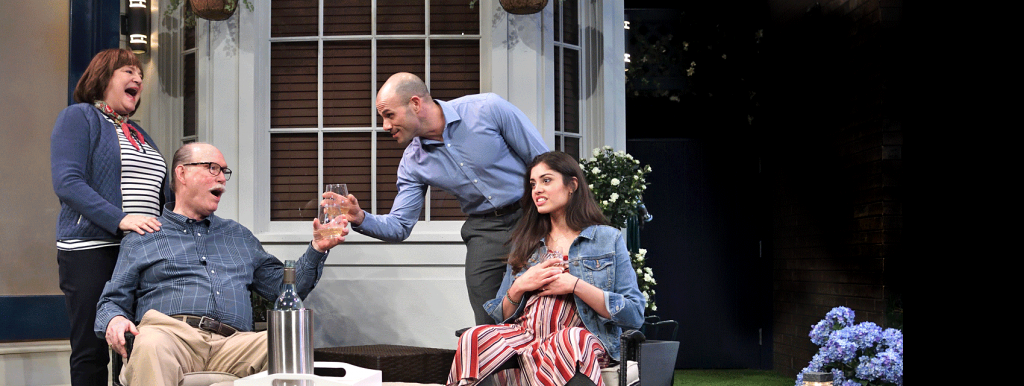José Rivera will be in Providence soon, and plans to see Trinity Rep’s production of his adaptation of Sueño while there! He previously stopped by in 2019 to see Trinity Rep’s production of his play Marisol.
When told about Trinity Rep’s vision for Sueño, he found director Tatyana-Marie Carlo’s telenovela-inspired vision particularly interesting.
“It’s funny they’re doing that because there’s a line that Rosaura says at one point calling her situation a ‘tortured soap opera,’” he recalled. “I think that’s great, and it’s so funny because even in the original, the relationship between Estrella and the Duke Astolfo really feels like an old-school Latin soap opera: He’s a cheater, and she wants to make sure he’s faithful. And there’s just a lot of the common tropes of soap operas in this story.”
Originally published in 1999, José wrote Sueño for Hartford Stage as a modernized adaption of Pedro Calderón de la Barca’s Spanish Golden Age play, La vida es sueño, or Life is a Dream in English. You can read more about the playwriting process in José’s own words in the Sueño show program.
“The original is kind of a timeless classic that people have loved for centuries,” José said. “I think the adaptation was meant to be very modern in terms of language, but the plot of the adaptation is basically the same as the original plot and characters. But I really sort of worked hard on creating the metaphors in a way that resonated with a contemporary audience.”
Yet over 20 years later, the show’s themes from both the original play and José’s adaptation remain more relevant than ever. In fact, José thinks that audiences will connect with some of the show’s themes better in 2022 than in 1999.
“Interestingly enough, some references in the play to plagues and disease I think may resonate more today than it did 20 years ago,” José noted. “But I think beyond that, the same issues apply. Rosaura is a very strong woman fighting to find her own voice and power in a very male world, and that’s certainly not changed at all, it’s still relevant. Some of the political issues are kind of timeless: Spain, at the time the play was written, was colonizing the New World. The idea of how people are colonized, and what happens in that relationship between the very powerful and the very weak, I think that is pretty resonant today.”
José’s been doing work on the small screen too, though not necessarily telenovelas. He’s currently working with Netflix on a television adaptation of Colombian author Gabriel García Márquez’s 1967 novel One Hundred Years of Solitude. The show is currently in pre-production, with José writing 16 episodes. At the time of the writing of this article, José expects the show to go into production next year.
Other screenplays José wrote include multiple episodes of the TV show Eerie, Indiana, which he co-created with Karl Schaefer, and the film The Motorcycle Diaries, which was nominated for an Academy Award for Best Adapted Screenplay.
“I think playwriting for me is a more natural process,” he said. “Plays and drama are a group of people sitting around telling stories, and that that’s pretty primitive. I think we’re hardwired to be a playwrights for that reason. Screenwriting is not a natural thing. Films didn’t exist 2000 years ago, so, I felt I had to really learn the craft of screenwriting, whereas I sort of naturally understood the craft of playwriting. I tell students that you write a screenplay with your eyes, and you write a play with your ears since plays are more language-based, and film is based in imagery.”
On both stage and screen, José has been a long-time advocate of Latinx representation. He said that while opportunities for Latinx artists have improved since early in his career, Latinx artists and works still tend to be tokenized. Sueño doesn’t require certain ethnicities in its cast, but in Trinity Rep’s production, multiple cast members and members of the artistic team identify as Latinx.
“I’m more optimistic, certainly,” José said. “When I first started there were so few Latin directors, playwrights, actors, anyone. I have very few role models growing up. And in the time since, from my 20s, to now I’ve seen a huge growth in the number of well-trained, highly-skilled, and educated Latin artists working in theater. But we still have a long way to go. I find that if I have a play at a regional theater, they’re not going to do another Latin play that season, they’re not going to do more than one per season. And that’s a drag, but hopefully that will change.”
